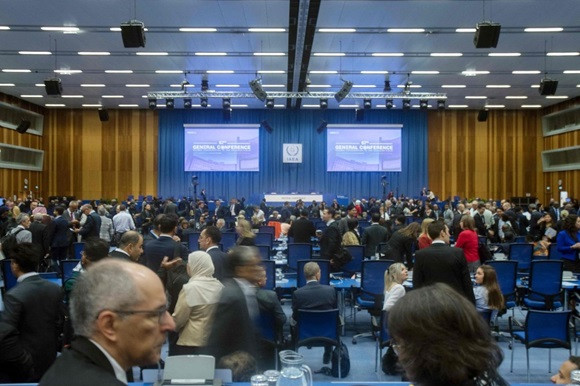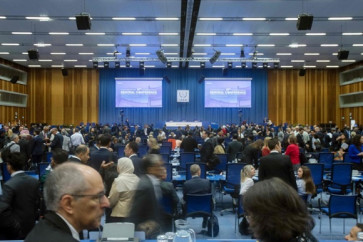Popular Reads
Top Results
Can't find what you're looking for?
View all search resultsPopular Reads
Top Results
Can't find what you're looking for?
View all search resultsIndonesia’s optimism amid global skepticism toward multilateralism
History has shown the inextricable link between Indonesia’s struggle to gain recognition of its independence and the multilateral diplomatic efforts undertaken within the UN deliberations.
Change text size
Gift Premium Articles
to Anyone
A
s the year 2024 passes the halfway mark, the global geopolitical landscape remains tumultuous. The conflict between Russia and Ukraine shows no signs of resolution, while Israel’s military occupation and aggression in Gaza also continue unabated.
The global community, even including domestic stakeholders, meanwhile, continues to question the effectiveness and relevance of multilateralism in addressing these pressing geopolitical challenges.
Criticism, questions and doubts about multilateralism are understandable. We must acknowledge that in the current geopolitical situation, we see multilateralism facing challenges, and reforming multilateral institutions is an urgent necessity, to revive its spirit and effectiveness.
Indonesia still and will continue to believe that multilateralism remains relevant, and there are several fundamental reasons why Indonesia continues to underscore the importance of multilateralism in its foreign policy.
It can be said that multilateralism has and will always be in the “DNA” of Indonesia’s foreign policy.
Foreign Minister Retno LP Marsudi, during her visit to the United Nations Office in Vienna, and Slovenia in June, emphasized the importance of multilateralism in her meetings with her Austrian and Slovenian counterparts, as well as with the executive secretary of the Comprehensive Nuclear-Test-Ban Treaty Organization (CTBTO) Robert Floyd, particularly in the context of the Palestinian issue and nuclear disarmament.
First and foremost, history has demonstrated the inextricable link between Indonesia’s struggle to gain recognition of its independence and the multilateral diplomatic efforts undertaken within the UN deliberations from 1947-1949, either by the Security Council or the General Assembly. The UN put on its agenda the question of the Dutch occupation of Indonesia’s territory and successfully brokered the peace process that led to the Round Table Conference in 1949.



















